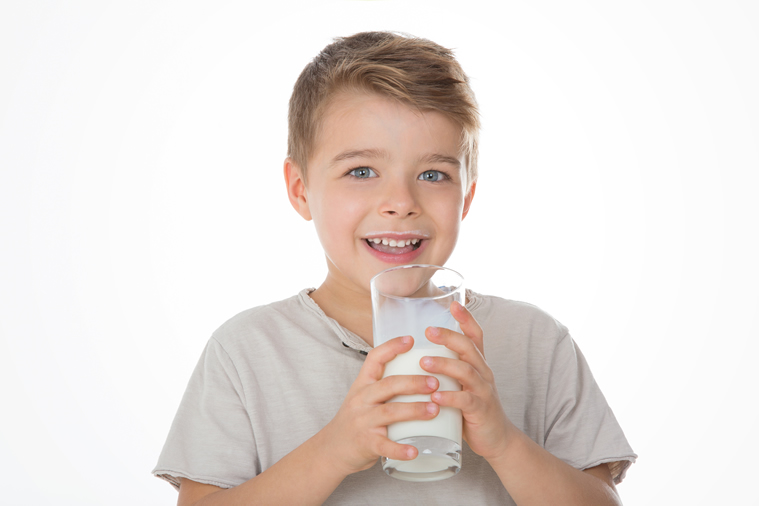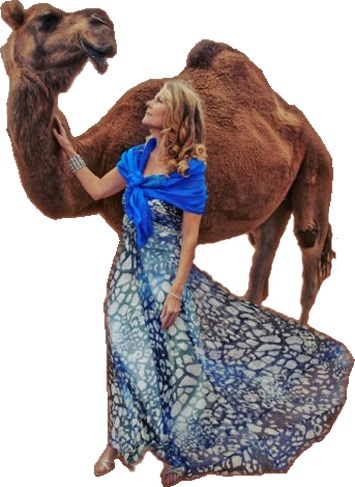Why I Give My Son Camel Milk
My teenage son gulps his cup of milk over the sink, then sighs, “I’m finished,” in a deep voice that still surprises me. There’s always an inch or two left.
“Drink it,” I say sternly or sweetly depending on how rushed our morning is. “You know how much it costs.”
“I know, Mom, hundreds of dollars,” he says heavily. “It’s just sometimes I’m not in a milk kind of mood.” He drinks another inch, hoists his backpack, turns his hat backwards and saunters off to catch the bus. “Love you,” he adds over his shoulder.
When my son was a toddler, he was diagnosed with autism. It’s the same old story–a child doing well, an exceptionally early talker at 9 months, smiling, attached, and observant. Around 15-18 months he changed, becoming hyperactive one unforgettable night. He lost his language, developed flaming red cheeks, ignored his stuffed animals and played with water and plumbing drains. He bit me until I was covered in blue bruises. I didn’t know what was wrong and doctors said he was fine, until a preschool teacher said, “He has autism.” It was true.
We did 40 hours a week of therapy and treated his damaged immune system with diet and meds. Despite my worst fears, it all worked. At age five he passed a kindergarten readiness test undetected for autism. He played with kids, attended regular classes and argued like a champion trial attorney. I thought the worst was over. But it wasn’t.
At age nine, he developed sudden behavior breakdowns. Once-tamed symptoms of autism leapt out—extreme giddiness, a gift for destruction, excitable jumping when watching cartoons (Sponge Bob was the worst), and a complete lack of attention. Worse, darting off to walk atop high wall or hang from two-story railings, seemingly deaf to my words. One time he lay face-up on a sidewalk, using a busy street curb as a pillow. Sometimes he was defiant, a mini pre-prison “Scared Straight” teen. This was my golden boy–what was happening? Divorced, I was a single mom now, and I worried how to keep him alive.
Two years earlier in 2005, when he was seven, I’d met a man with a camel, selling soap he made from camel milk at a children’s book fair. The man told me he’d heard camel milk was non-allergenic and given to premature babies in the Middle East. Since I was still trying to boost my son’s immune system, and cow milk made him act autistic, I thought camel milk might reboot his immune function and be a good dairy substitute too. That day, I scoured the Internet but only found a few strange articles about making cheese and healing wounds. A few months later, I found an Israeli veterinarian’s new report about camel milk helping an autistic child. And I knew my instincts were right.
In late 2006, a Pakistani friend brought me milk from Israel, but JFK airport customs banned it from entry. Luckily he got a phone number that led me to a respected Israeli scientist. We chatted over Skype, me sharing information about autism, him talking about camel milk. I learned it was an ancient healing substance that people can live on it for months. Though neither of us knew what would happen if my son drank it, we thought it was safe. So I obtained a doctor’s letter and flew in some raw milk from desert nomads in Israel. Holding the frozen yellowish bottles of Bedouin milk in my California condo felt like a leap across time. I flew in more, enough for a stockpile, waiting for the right time to give it.
In 2007, faced with those behavioral breakdowns, I gave him a half-cup of camel milk at bedtime. The next morning, his speech, and eye contact were the best ever. At the breakfast table, he stunned my fiancé and I with newly mature language, loving expressions and complex conversations. “You know, Mom, I really love you. You guys do so much for me,” he said. He ate his breakfast neatly, drank without spills, then put on his own shoes and backpack and said it was time for school—all firsts. By the third day, he was crossing parking lots and streets without me having to hold him. And those breakdowns? They quickly stopped.
After raising the daily serving to a full cup, he developed a few tics, which disappeared when I cut back to half-cup. Even the white bumps on his cheeks disappeared. His school data improved and he tested with a college-level vocabulary. The long flights to bring milk from Israel were expensive, as was the milk. But it was so effective that I got USDA permission to import camel milk for his autism. I’d pick up suitcases of milk at 2 am from international airports, hoping it was still frozen after 27 hours in transit (it always was). Officials at every checkpoint sent blessings as they passed it along.
In 2011, camel milk started being produced in the US. Luckily, the American milk had the same great effect on him. I went public with our story in 2012. Then I published a medical journal article in Global Advances in Health and Medicine in 2013. Now I speak to doctors, families, farmers and scientists from all over the world. New scientific studies reveal that drinking camel milk is safe and effective in diabetes, hepatitis, Crohn’s disease and food allergies as well as autism. Camel antibodies are being used by scientists to create new medical treatments.
After my first camel milk purchase, the milk seller called from Israel. “Many people say they would go all over the world to help their child,” he said, his English hesitant with emotion. “Nobody really does it, but you did.”
So I smile at the empty cup in the sink as my boy goes off to school. I want the world to have camel milk in every grocery store. I want autistic kids to complain, “I don’t like milk,” drink up, and slam the door on their way to a better life.
Christina Adams, MFA, is a writer and speaker whose work has been on NPR, The Los Angeles Times, The Washington Post, OZY and more. She’s the author of A Real Boy: A True Story of Autism, Early Intervention and Recovery (Berkley/Penguin) and a noted authority on camel milk and autism. Her website is www.christinaadamsauthor.com. Contact her at by email, on Facebook, or on Twitter.





